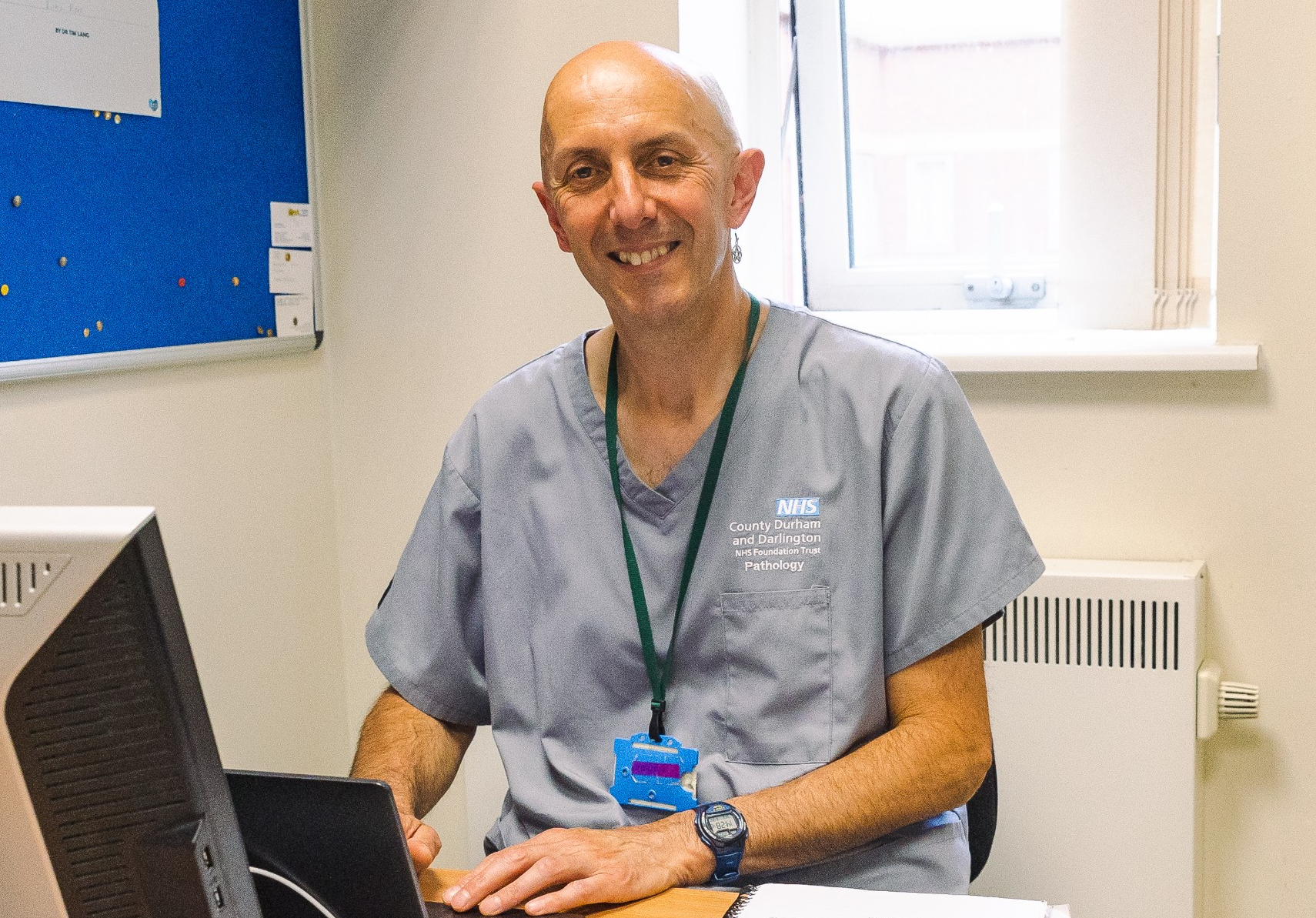
Andrology
Cytology is located within the Pathology department at University Hospital of North Durham, on the lower ground floor, between the lifts and stairs C and D. The laboratory opening hours are: 8.30am - 4:30pm, Monday to Friday.
Fresh specimens should be sent to the laboratory as soon as possible to minimise deterioration of the cell content as interpretation may be adversely affected if there is significant delay. Specimens which are fixed prior to receipt by the laboratory (i.e. miscellaneous brushes) are not however critically affected by delays. Advice is always available from the laboratory - Extension 32446.
We aim to provide 80% of results within 72 hours of specimen receipt in the laboratory unless a second opinion and / or ancillary tests are required. Urgent specimens will take an absolute minimum of 2 hours to be reported if fresh upon receipt. (Some fine needle aspirates and specimens received fixed may be available for reporting sooner.)
You will need to carefully discriminate between routine and genuinely urgent cases. The latter disrupt normal laboratory practice with significant knock-on effects for other specimens. For urgent requests submit an extension/bleep number for reply.
All gynaecological cytology and cervical screening is performed at the Queen Elizabeth Hospital in Gateshead. For any further information, please contact: 0800 953 7610
All Diagnostic Cytology samples must be kept refrigerated. It is essential that samples are transported to the pathology department as quickly as possible to avoid degeneration.
Specimen: Fresh early morning deep cough sputum is required, i.e. first sputum production of day, before the patient has eaten or cleaned teeth.
No anticoagulant or fixative.
Specimen: Fresh. Large volumes of fluid should be physically mixed and a representative universal container of fluid sent. Any clots present should be sent in the fluid as these often contain large numbers of cells. Specimen to reach the laboratory within two hours. (If necessary may be kept overnight in the fridge but sub-optimal results may be obtained.)
NOT Boric Acid universal.
Specimen: Fresh. Specimen must not be first urine of the day. A whole specimen of urine should be collected after the patient has walked around (if mobile) for a little while. Specimen must reach laboratory as soon as possible as urine is hostile to the cells and degeneration is very rapid. They must be in a white top universal (20ml).
Specimen: Contents of aspiration needle should be blown with syringe onto an appropriate number of slides, spread quickly (as blood film) to produce monolayer and AIR DRIED AS RAPIDLY AS POSSIBLE which usually means wafting the slides in the air. Slides should then be sent in dry slide container to the laboratory as soon as feasible. If fluid is aspirated this should be sent to the laboratory in a sterile universal container as soon as possible. The discarded needle can be placed in the Cytolyt for a needle rinse preparation. Technical advice is available - Extension 32446.
Specimen: The brush should be immediately cut and dropped into a container of Cytolyt - supplies of Cytolyt should be available on all endoscopy sites.
Specimen: Fresh. Lavage and trap specimens should be collected and sent to laboratory within two hours.
Specimen: Immediately place sample into a container of Cytolyt and transport to the histology specimen reception before 15:30 to be processed on the same day, samples received after this time may be subject to a 24hr delay.
CSF samples for cytological investigations must be prepared urgently and ideally within 4 hours of the sample being taken to avoid degeneration.
Samples should be placed into a white topped universal without any fixative and sent with a Cellular Pathology request form.
At least 1ml of sample should be sent to ensure all required tests can be performed.
ALL cytology samples should be sent in the white refrigerator transport bags if sending from sites other than UHND
Samples should be sent to the laboratory fully labelled in a safe manner.
Samples should be in a separate transport bag with the completed request form attached. Sample containers and request forms must not be kept within a single bag to prevent contamination of the request form.
Samples can only be accepted for routine processing if there is no leakage, correct labelling, accompanying request form, no indication of high risk and appropriate container used.
Rejection of samples will depend on:
Routine samples
Unique coded identifier